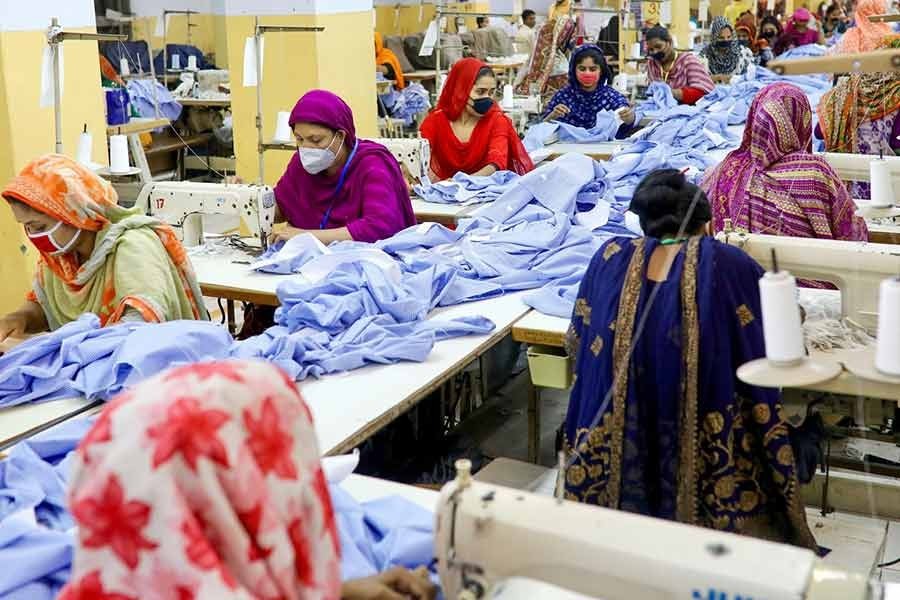A donor-aided study is being launched on Bangladesh's switch to non-cotton textiles and apparel from costly cotton-made exports, as a deal was signed Sunday to this end.
Bangladesh Garment Manufacturers and Exporters Association (BGMEA) will conduct the study to explore potential of non-cotton wears and the global market prior to formulating a strategy to develop the country's overall competitiveness.
The apparel association signed the agreement with an Indian consulting firm to conduct the study on 'Fibre Diversification Study of Non-Cotton Textile and Apparel for Bangladesh in the Global Market', according to a statement.
BGMEA President Faruque Hassan and Business Director of Wazir Advisors Varun Vaid virtually inked the deal on behalf their respective organisations.
The objective of the study is to identify potential scope of non-cotton textile and apparel for Bangladesh on the global apparel market and formulate a strategy to develop the country's overall competitiveness and strengths in the area, the statement says.
It will also identify key challenges for Bangladesh to capture a significant pie of non-cotton apparel market.
The study will analyse non-cotton product categories in terms of complexities, resources and trade volumes while economic, demand and sustainability rationale of non-cotton apparel will be looked upon.
Competitiveness in terms of products, technologies, skill, cost and availability of other resources will be assessed in the study which will also identify challenges that limit Bangladesh's potential to supply non-cotton products, the statement adds.
Also, it will develop a roadmap for manufacturers, investors, policymakers, development partners and other influencers, detailing approach and ways to establish a strong presence in non-cotton textile and apparel market.
BGMEA President Faruque Hassan says cotton has so far driven the country's growth in the apparel sector. But the growth of cotton-based products seems to have hit its peak, and there is little scope for growth through the natural fibre because the global fashion trend has drastically shifted from cotton to man-made fibres.
"It is now time we tapped into this segment, where, I believe, this study will play a crucial role," he adds.
Mr Vaid said, "Global textile demand is rapidly moving towards manmade fibres. With better functionality, price competitiveness and popularity of categories like sportswear and athleisure manmade fibres are on a high growth path."
Global trade is also in a cusp of restructuring with China vacating trade share, he said, adding that Bangladesh can leverage its manufacturing competitiveness and buyer relationship to capitalise on this opportunity.
But the key aspect will be to present itself as a diversified supplier across categories and fibres.
The study will act as guide for the policymakers. It will encompass learning from global leaders, evolution of industry elsewhere, key enablers - investments, ecosystem, policies, and partnerships.
According to the statement, the study will be funded by IFC's Partnership for Cleaner Textile (PaCT II) programme, supported by the government of Denmark through the Danish International Development Agency (DANIDA) and the Embassy of the Kingdom of the Netherlands in Bangladesh.


